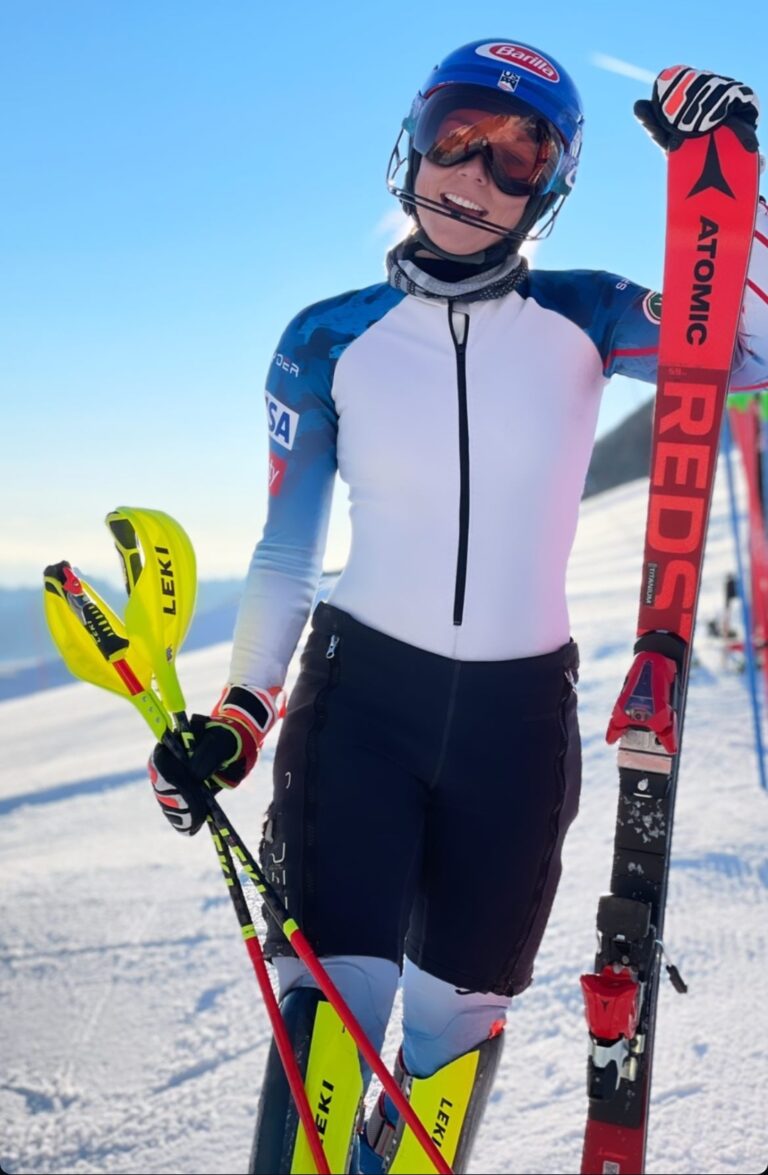Alpine skiing icon Mikaela Shiffrin is channeling personal growth and resilience as she readies herself for the 2026 Winter Olympics in Milano Cortina. In an exclusive interview with Olympics.com during the Atomic Media Day, the two-time Olympic gold medalist discussed her journey toward overcoming fears, drawing parallels between recent injuries and past grief, and her determination to reconcile with the Olympic stage after a challenging Beijing 2022.
At 30, Shiffrin has evolved beyond her prodigious talent on the slopes, revealing layers of emotional depth. Comparing herself to a “thicker onion,” she shared insights into her favorite tracks from Taylor Swift’s recent album, appreciating their introspective lyrics over pop anthems. This openness extends to her mental health struggles, including symptoms of post-traumatic stress disorder (PTSD) following a puncture wound from a crash at her home race in Killington last November.
The injury sidelined her for two months, and upon returning, Shiffrin grappled with anxiety, especially in giant slalom events. “Last year’s ordeal mirrored the emotions I felt after losing my dad,” she explained, referencing the sudden passing of her father, Jeff, in early 2020. Back then, she paused her career to process her grief without professional psychological support. Now, working with a psychologist has provided her with tools to understand PTSD, intrusive thoughts, and the brain’s chemical responses.
“This knowledge has made me more at ease with experiencing fear,” Shiffrin said. Her approach involves gradual exposure to high-speed skiing through consistent practice, emphasizing persistence: “Step by step, it improves.”
Throughout her recovery, Shiffrin leaned on her fiancé, Norwegian skiing star Aleksander Aamodt Kilde, who was simultaneously battling severe injuries from a January 2024 crash, complicated by a shoulder infection. The couple prioritizes empathetic communication without imposing advice. “We’re skilled at sharing our feelings and supporting each other,” she noted. Kilde’s reassurance—that it’s okay if things don’t go as planned—helped alleviate pressure during her comeback.
As Shiffrin embarks on her fourth Olympic cycle, potentially not her final one, she views Milano Cortina as a chance to find closure rather than settle scores. Her Beijing 2022 performance, where she didn’t medal and failed to finish three of six events, left lingering apprehension. “I don’t want Beijing to fuel my fear of the Olympics,” she stated. Factors like COVID-19 recovery, the anniversary of her father’s death, and external pressures contributed to the setbacks, but she highlights a positive: her resilience in repeatedly returning to the start gate.
“I’m optimistic about the season ahead,” Shiffrin added. “When Cortina arrives, we’ll handle it day by day.” She plans to focus on three events—slalom, giant slalom, and team combined—opting for a more sustainable strategy over racing everything, as she did in Beijing. While she aims to reintegrate Super-G into her schedule, a full slate is unrealistic for her physical and mental well-being.
Reflecting on her decade-plus Olympic journey since debuting as a teenager in Sochi 2014, Shiffrin acknowledges feeling “older and wiser.” Accumulated experiences—from injuries and loss to the weight of expectations—have tempered her once-naive enthusiasm. “I sometimes miss that fresh, ignorant bliss,” she admitted. Yet, she embraces the wisdom gained: “You can’t undo the past, so I’m thankful for the growth.”
With the 2025/2026 FIS Alpine Ski World Cup season underway, Shiffrin remains a dominant force, holding a record 97 World Cup wins and eight world championships. Her candidness about mental health continues to inspire, positioning her not just as a competitor, but as a role model for balancing elite performance with personal vulnerability.
The Milano Cortina Winter Olympics, scheduled for February 6–22, 2026, promise a fitting backdrop for Shiffrin to pursue harmony on the snow, in a region steeped in alpine tradition.
